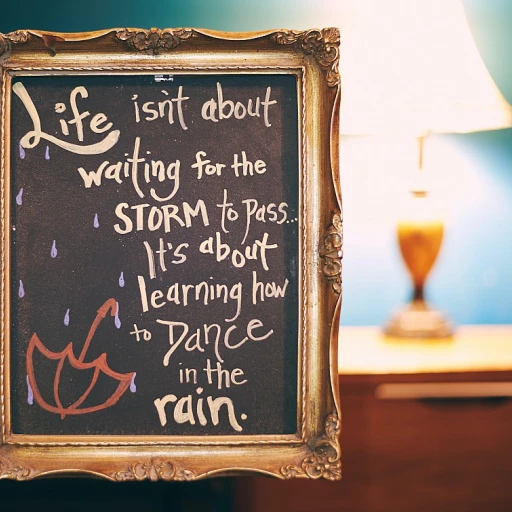Understanding Situational Questions
Grasping the Concept of Scenario-Based Questions
Scenario-based questions in job interviews can feel like a curveball, especially when you're seated across from a hiring manager in a human resources interview. But worry not. By the time you finish reading this post, you'll not only understand these questions but also be ready to provide a stellar answer with confidence. These situational questions are all about putting yourself in a hypothetical situation to better assess how you'd handle real-life work challenges. It's not just about what you would do, but also about showcasing your problem-solving skills, conflict resolution abilities, and how you, as a candidate, can adapt to various roles in a work environment or even within a team project. What makes these questions unique is that they offer employers a glimpse into your practical skills rather than just your knowledge or experience. They want to see how you engage with your team members or how you would describe a time you handled a challenging project scenario. Sure, it can be nerve-wracking at first but remember, your task is to demonstrate your fit with the company's culture and expectations. As an interviewee, you'll find that addressing these questions with a strategic approach can really set you apart. Think about moments when you effectively managed your work or supported your co-workers as if you were already part of their team. Don't just focus on crafting your responses; consider reviewing top situational interview questions and determining how your past roles have prepared you to tackle complex situations. Above all, maintain confidence without being overconfident, and always be prepared to describe the situation accurately and meaningfully. For more insights into effectively tackling these scenario-based questions, check out this blog on mastering HR scenario questions in interviews.Common Situational Questions in HR Interviews
Typical Situational Interview Questions
When you're preparing for an HR interview, situational questions are likely to pop up. These questions are designed to gauge your problem-solving skills and how you handle work situations. They often start with phrases like "Describe a time when..." or "Tell me about a situation where..." Here are some common ones you might encounter:
- Conflict Resolution: "Describe a situation where you had a conflict with a team member. How did you resolve it?" This question tests your ability to handle disagreements and maintain a positive work environment.
- Project Management: "Tell me about a time you had to manage a project under a tight deadline. How did you ensure success?" Here, the interviewer is interested in your organizational skills and ability to work under pressure.
- Leadership: "Describe a time when you had to lead a team. What was the outcome?" This question looks at your leadership skills and how you motivate others.
- Adaptability: "Tell me about a situation where you had to adapt to a significant change at work. How did you handle it?" This tests your flexibility and ability to thrive in a changing environment.
- Problem Solving: "Describe a time you identified a problem and came up with a solution. What was the impact?" Here, your critical thinking and initiative are under the spotlight.
These questions give hiring managers insight into your past behavior and how you might fit into their company culture. By reflecting on your experiences and preparing your answers, you can demonstrate your ability to handle various job scenarios.
For more on mastering these questions, check out our guide on mastering situational HR interview questions.
The STAR Method: Your Key to Success
Use the STAR Method for Your Interview Questions
Imagine you're preparing for an HR interview, and the hiring manager throws you a tough, situational question. That's where the STAR method shines – your go-to strategy for crafting a standout response that showcases your expertise and storytelling abilities. STAR stands for:- Situation
- Task
- Action
- Result
Preparing for Situational Questions
Polishing Your Answers for HR Interviews
Before you walk into that interview room, it’s vital to be prepared for situational interview questions that can test your problem-solving skills and how you'd handle specific work scenarios. Here are a few steps to get you prepared to tackle any question with confidence.Research and Understand the Role
Start by thoroughly examining the job description. Identify the skills and requirements highlighted for the role. This will help you anticipate the types of situational questions you might face. Are they looking for a team player or someone with strong conflict resolution skills? Tailor your preparation accordingly. This understanding will not only help you predict questions but also craft your answers to align with what the company values.Reflect on Past Experiences
Think about instances in previous roles where you've demonstrated the desired skills. Whether it was leading a project, resolving a team conflict, or helping a company shift its culture, these experiences are your toolkit. Pen down these instances with details, focusing on the context, your role, the problem, actions taken, and outcomes.- Describe the situation: What was happening? Who was involved? Define the context clearly.
- Your role: Were you leading or supporting? Explain your level of involvement and responsibility.
- The problem: What challenge were you or your team facing? Be specific about the issue at hand.
- Actions taken: Detail the actual steps you took to address the problem. This showcases your problem-solving abilities.
- Outcome: What was the result of your actions? Highlight successes and learnings, supported by measurable achievements if possible.
Practice Makes Perfect
Practicing your responses can make a world of difference. Either with a friend or in front of a mirror, simulate the interview environment. This will help you develop a natural flow in your answers and boost your confidence when facing the hiring manager. Consider recording yourself to catch areas needing improvement.Stay Up-to-date with Common Questions
Familiarize yourself with common situational interview questions that might pop up. These often revolve around teamwork, leadership, and conflict management. Questions like, "Describe a time you handled a team disagreement," or "Explain how you managed a project under a tight deadline," are classic examples.Align with the Company Culture
Understanding the company culture helps you align your responses with their expectations. Review the company’s website, recent projects, and values to understand their work environment. Then, tailor your examples to reflect that culture. For instance, if the company prides itself on innovation, highlight a time you embraced a novel approach to solve a problem. Remember, preparing for situational questions is about showcasing your ability to adapt and excel in various situations. Stay focused, practice thoroughly, and cross-check your answers for alignment with the job and company values. You'll be ready to shine in that HR interview!Responding with Confidence
Answering with Assurance
Now that you've got the basics in your toolkit, it's time to show up and shine. When you walk into a situational interview, think of it as a chance to showcase your problem-solving skills and experience. This is your moment to let hiring managers see the real you and understand your ability to handle different scenarios. When you're posed with a situational question, remember the STAR method to guide your thoughts and structure your response:- Situation: Describe the situation clearly. Don't skip details that help others understand the scenario.
- Task: Explain the task or challenge at hand. What were you supposed to do?
- Action: Detail the actions you took. Shine a light on your role and decisions.
- Result: Conclude with the outcome. How did your actions positively impact the company or team?
Avoiding Common Pitfalls
Steer Clear of These Missteps
When you're in the hot seat, answering situational interview questions can feel like walking a tightrope. The key is to stay balanced and avoid falling into common traps. Here are some pitfalls to watch out for:
- Winging It: Walking into an interview without preparation is like heading to a party without an invite. Always prepare by reviewing the job description and practicing your responses using the STAR method to structure your answers. This will help you present your problem-solving skills and ability to handle challenges effectively.
- Being Vague: Avoid generalities. Interviewers want specifics. Describe a situation clearly, explain your role, and highlight your actions and results. This shows your ability to tackle real-world problems.
- Neglecting Team Dynamics: Remember, most jobs require collaboration. When discussing past experiences, highlight how you worked with team members and supported your colleagues. This demonstrates your understanding of company culture and teamwork.
- Overlooking the Negative: While it’s tempting to only share successes, discussing a challenging situation where things didn't go as planned can showcase your conflict resolution skills and ability to learn from mistakes.
- Forgetting to Connect: Make sure your answers align with the company’s values and the role you’re applying for. Show that you understand the work environment and how you can contribute positively.
By steering clear of these pitfalls, you can respond with confidence and leave a lasting impression on the hiring manager. Remember, every question is an opportunity to show why you're the right candidate for the job.




